Wounded Gazans struggle to find treatment
Updated: 2014-09-02 07:39
By Agence France-Presse in Gaza City(China Daily)
|
||||||||
Medical workers volunteer to stay on to help victims of Israeli shelling
Still in shock weeks after a blast from an Israeli shell shredded his arm and killed four members of his family, Ahmed Ayyad is one of many wounded Gazans now in need of long-term care.
|
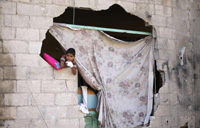 In photos: Gaza healing from war after ceasefire
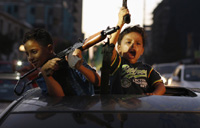 Ceasefire comes into effect in the Gaza Strip |
But many of the organizations charged with helping people like Ayyad are themselves struggling to cope in the wake of the Israeli offensive in which the United Nations estimates more than 10,000 Palestinians were wounded, with up to 1,000 likely to suffer permanent disabilities.
Staring blankly ahead and speaking softly, the 23-year-old Ayyad sits in the waiting room of Gaza's only prosthetics center as he recalls the day that shrapnel raked his chest and his left arm, which was amputated above the elbow.
"The shelling started at dawn prayer in areas far away but we heard the sound of it coming closer to us at six in the morning, and we were forced to leave our homes," he said.
Israel launched its campaign on July 8 with the aim of destroying the tunnels of militants that were used to launch attacks. The Shejaiya neighborhood where Ayyad was wounded on July 20 suffered intense shelling.
His family and dozens of his neighbors were 50 meters from their house when shells hit nearby, killing two of his nephews and two other members of his extended family.
"As soon as I was hit, I lost consciousness. I was hit in my hand, in my leg and my chest. There were body parts in the area and bodies and people who had lost limbs," he said quietly.
Ayyad was evacuated to Nablus in the West Bank, where his arm was amputated. Unlike some of the wounded, who are staying in Jordanian, Egyptian and Turkish hospitals for treatment, Ayyad returned home after 14 days to start treatment at Gaza's Artificial Limbs and Polio Center.
A doctor gently led him to a gurney in the corner of the small clinic and massaged the stump where Ayyad's left arm was to desensitize the skin. It was the first of many sessions the young man will need before his prosthesis can be fitted.
The center has no shortage of equipment for prosthetics, provided by the Red Cross, but the dire financial situation of the Gaza municipality, which pays the 25 employees their salaries, threatens its ability to stay in operation, says Hazem Shawwa, the center's director.
"This is the third month without salaries for the center's employees," he said.
The Gaza Strip has been under an intense financial squeeze since Israel imposed a blockade in 2006.
"We agreed with the employees that we will keep offering services even if there are no wages, for as long as possible," Shawwa says, though he admits he does not know how long they can hold out.
Health workers suffer
Since last Tuesday's start of the Gaza cease-fire, aid groups have started offering help to residents who suffered life-changing injuries in the conflict.
In Shejaiya, a team of nurses supported by staff members from Handicap International, an NGO that has been working in Gaza since 2007, was visiting 28-year-old Nahaya al-An-gar.
When an Israeli shell hit her house on July 20, she and her three children were buried beneath the rubble.
Her children suffered burns but the debris that fell on her caused pelvic fractures that have left her unable to walk unsupported.
Sitting in a bed in her father's house a few streets away from her ruined home, crutches on one side of her and her 10-year-old daughter Nur on the other, she is still in shock.
"The house collapsed on us. I couldn't hear anything apart from the shaking and a buzzing sound. The first time I saw how I was under the rubble, I said to myself, 'That's it, we're going to die'."

 World's largest duty-free shop opens in China's Sanya
World's largest duty-free shop opens in China's Sanya
 Xiamen Air gets its first Dreamliner
Xiamen Air gets its first Dreamliner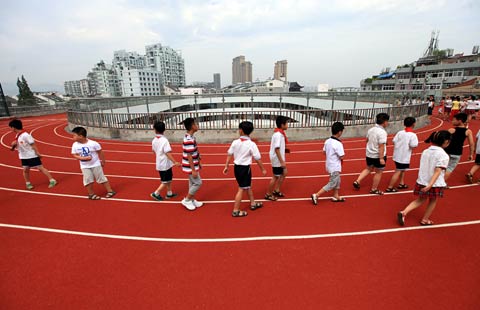
 Running track built on school roof
Running track built on school roof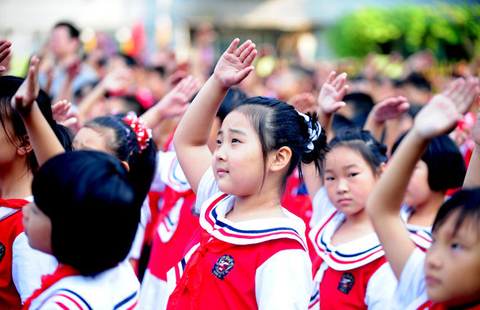
 Expressions on the first day of new school
Expressions on the first day of new school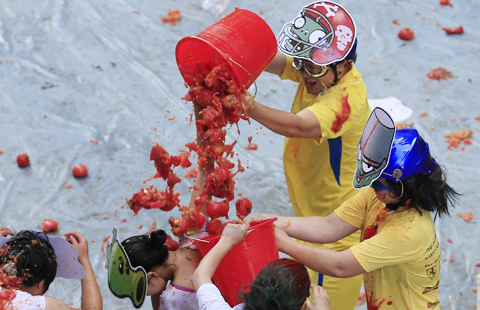
 Tomatina joy in Northeast China
Tomatina joy in Northeast China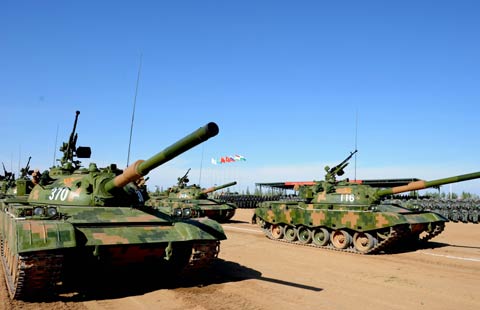
 Peace Mission - 2014 military drill ends in China's Inner Mongolia
Peace Mission - 2014 military drill ends in China's Inner Mongolia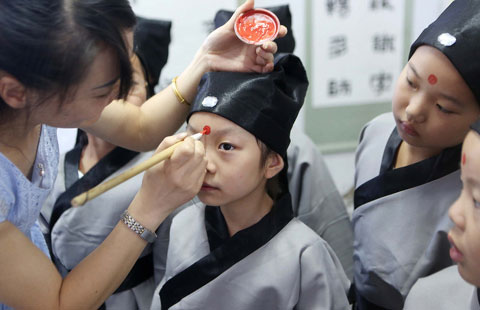
 First steps on a journey of discovery
First steps on a journey of discovery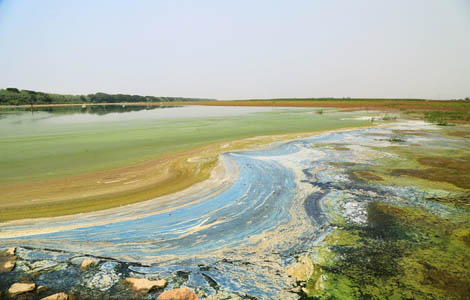
 Garbage dump turns water into poison
Garbage dump turns water into poison
Most Viewed
Editor's Picks

|

|

|

|

|

|
Today's Top News
Beijing spruces itself up for APEC summit
New Budget Law to change the game
Microsoft asked to explain monopoly accusations
China makes largest share of foreign students
Chinese American to run NYC public schools' fund
US launches fresh air strikes on IS rebels
NPC decision a landmark in HK democratic development
Chui Sai On elected Macao chief executive-designate
US Weekly

|

|







